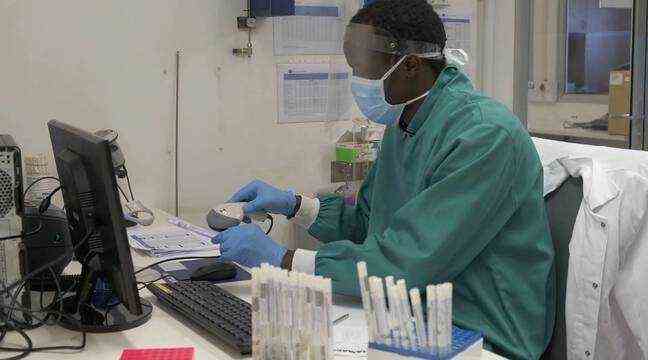Will it be more or less dangerous than the Delta variant? WHO experts responsible for monitoring developments in the coronavirus are meeting this Friday to determine whether the new variant B.1.1.529 should be classified as “worrying” or “to be continued”, explained Christian Lindmeier, during a regular press briefing by UN agencies. This meeting comes after South African scientists announced on Thursday that a new variant of Covid-19 with an “extremely high” number of mutations and with a “potential for very rapid spread” had been detected in the country.
After the announcement, several countries, including France, the United Kingdom and Germany, announced that they would ban entry to travelers from African countries. “WHO recommends that countries continue to apply a scientific and risk-based approach when implementing travel measures, in accordance with the temporary recommendations of the Emergency Committee (…). At this stage, once again, the implementation of travel restriction measures is not recommended, ”for his part reacted Christian Lindmeier.
No name yet for this new variant
To facilitate public debates on variants, the WHO names the variants using the names of the letters of the Greek alphabet (alpha, beta, gamma, delta, etc.), which are more accessible to a non-scientific audience and which makes it possible to ” avoid stigmatizing the country where this variant was initially discovered. The WHO, however, has not yet given new names to the new variant, as its experts have not yet classified it.
“The first analyzes show that this variant has a large number of mutations which require and will be the subject of further study,” said Christian Lindmeier. “It will take a few weeks for us to understand the impact of this variant. Researchers are working to better understand the mutations and what they might mean in terms of transmissibility or virulence of the variant, and what the effects might be on diagnostic tools, treatments and vaccines, ”he said. .
A story of change
All viruses, including SARS-CoV-2 which is responsible for Covid-19, mutate over time. Most mutations have little or no effect on the properties of the virus. However, certain mutations can affect the properties of a virus and affect, for example, how easily it spreads, the severity of the disease it causes, or the effectiveness of vaccines and drugs.
WHO has been monitoring and evaluating the evolution of SARS-CoV-2 since January 2020, in collaboration with its partners. The emergence at the end of 2020 of variants that presented an increased risk to global public health led to the characterization of variants for monitoring and variants of concern, in order to prioritize surveillance and research activities at the global level to guide the response to the pandemic.

